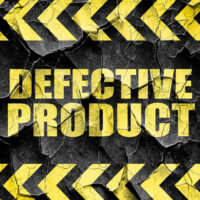Man Who Stages His Own Slip and Fall Caught on Camera

For those of you who are fans of the hit TV show Better Call Saul, you’ll remember that the lead character is also known as “Slippin Jimmy”. He’s earned this moniker by conning proprietors by staging slip and fall accidents in public proprietary establishments. For those of us who practice law, the idea of trying to make money like this is absurd. Namely, because it’s actually quite difficult to win a slip and fall lawsuit. So the idea that an actual man in the real world would attempt to get away with this is amusing, but it also allows to discuss slip and fall lawsuits and the particulars of proving one to a jury.
Video footage showed the man dropping ice on the floor in front of a soda dispenser and then proceeding to slip. If you’re thinking about doing this yourself, you should realize that these types of cases generally take years to resolve and, point of fact, soda dispensers are a likely place where you’ll find surveillance cameras. Additionally, evidence that you staged an accident can be used against in court if you ever actually do injure yourself and a proprietor is legitimately at fault. Below, we’ll discuss slip and fall accidents and why this man’s case was never very likely to have succeeded.
Proving a Slip and Fall Accident Claim
Premises liability claims, such as slip and fall accidents, require that the plaintiff show that the accident was foreseeable. This is true of all premises liability claims from slip and falls to negligent security claims to attractive nuisance claims. For that reason, ignorance of the dangerous condition can be entered as a valid defense against the claim, hence making it very difficult to prove. In many cases, personal injury attorneys will be required to chip away at the ignorance defense. There are three ways to do this:
- We show that the proprietor or employees knew about the dangerous condition – For instance, if an employee walked past the dangerous condition and did nothing to remedy it, that can be used as evidence of foreseeability.
- We should that the proprietor should have known about the dangerous condition – In other words, simply being oblivious is not necessarily a valid defense. In cases of icy parking lots or other conditions of that nature, the law permits a plaintiff to claim that
- We show that the proprietor actually caused the dangerous condition – In cases where the proprietor or an employee for the company literally causes the dangerous condition to exist, then they cannot claim a lack of foreseeability.
Most of the assertions or arguments that make for a successful premises liability lawsuit are aimed at debunking the claim that the event was not foreseeable. Now in a case like the individual who spilled ice on the floor, a soda dispenser in a place where the staff would be expected to check on rather frequently. This, in fact, is why insurance companies give proprietors rebates and reduce their premiums for having the camera there in the first place.
Talk to a Miami Personal Injury Attorney
If you’ve been injured by the negligence of a careless proprietor, the Miami premises liability attorneys at the office of Alan Goldfarb, P.A. can help you. If you’ve thrown ice on the floor to stage your own injury, there’s nothing that Alan Goldfarb, P.A. can do for you. If you fall into the former category, give us a call to set up a free consultation. We will be happy to help.
Resource:
wesh.com/article/video-fake-fall-ahead-of-phony-insurance-claim-caught-on-camera/26109845
https://www.goldfarbpa.com/goodyear-accused-of-legal-misconduct-over-defective-tires/
